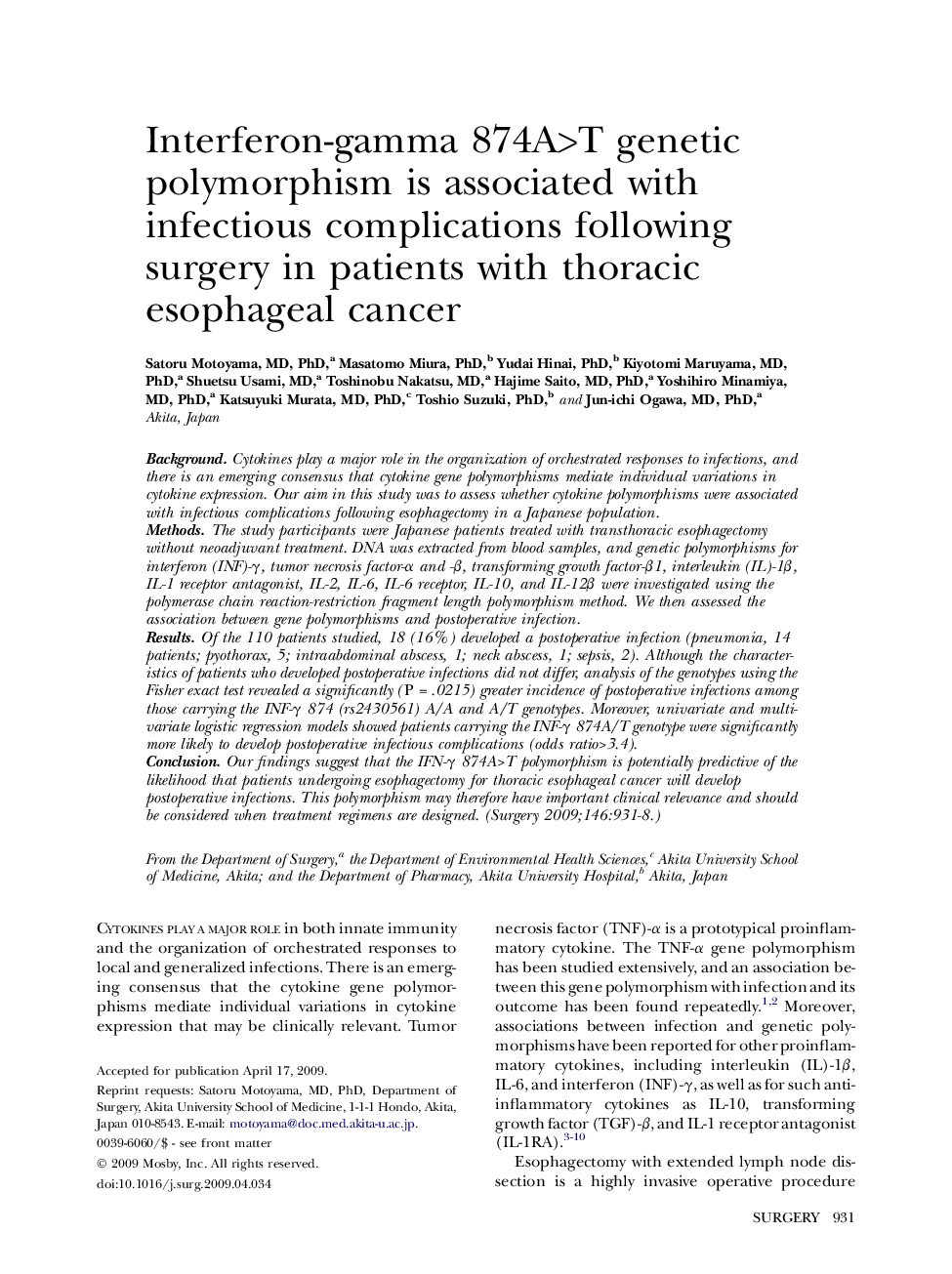| Article ID | Journal | Published Year | Pages | File Type |
|---|---|---|---|---|
| 4309426 | Surgery | 2009 | 8 Pages |
BackgroundCytokines play a major role in the organization of orchestrated responses to infections, and there is an emerging consensus that cytokine gene polymorphisms mediate individual variations in cytokine expression. Our aim in this study was to assess whether cytokine polymorphisms were associated with infectious complications following esophagectomy in a Japanese population.MethodsThe study participants were Japanese patients treated with transthoracic esophagectomy without neoadjuvant treatment. DNA was extracted from blood samples, and genetic polymorphisms for interferon (INF)-γ, tumor necrosis factor-α and -β, transforming growth factor-β1, interleukin (IL)-1β, IL-1 receptor antagonist, IL-2, IL-6, IL-6 receptor, IL-10, and IL-12β were investigated using the polymerase chain reaction-restriction fragment length polymorphism method. We then assessed the association between gene polymorphisms and postoperative infection.ResultsOf the 110 patients studied, 18 (16%) developed a postoperative infection (pneumonia, 14 patients; pyothorax, 5; intraabdominal abscess, 1; neck abscess, 1; sepsis, 2). Although the characteristics of patients who developed postoperative infections did not differ, analysis of the genotypes using the Fisher exact test revealed a significantly (P = .0215) greater incidence of postoperative infections among those carrying the INF-γ 874 (rs2430561) A/A and A/T genotypes. Moreover, univariate and multivariate logistic regression models showed patients carrying the INF-γ 874A/T genotype were significantly more likely to develop postoperative infectious complications (odds ratio>3.4).ConclusionOur findings suggest that the IFN-γ 874A>T polymorphism is potentially predictive of the likelihood that patients undergoing esophagectomy for thoracic esophageal cancer will develop postoperative infections. This polymorphism may therefore have important clinical relevance and should be considered when treatment regimens are designed.
